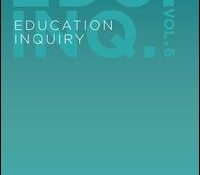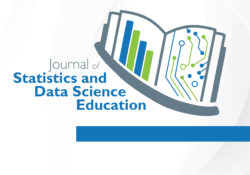eric.ed.gov har udgivet: The stability of classroom behavior is examined from several perspectives: (1) the relative consistency of teacher behavior in two different sections of the same course taught concurrently; (2) the relative consistency of student behavior in math and English classes attended concurrently; and (3) differences in student and teacher behavior in math vs. English classes (to determine the effects of subject matter on teacher and student behavior). In general, stability coefficients obtained here were much higher than those expected on the basis of earlier research on stability in courses taught successively rather than concurrently. Even so, high inference ratings were more stable than low inference counts of discrete behaviors, and many behaviors did not occur often enough to allow stable measurement, despite intensive observation. The data are discussed… Continue Reading →
Like this:
Like Loading...
eric.ed.gov har udgivet: „Investigations in Math and Science AB‟ is an annual science elective for students in grades 7-12 in Los Angeles Unified School District. Section 1 of this guide provides teachers with a discussion of the course content, including the course description, representative objectives, required instructional units, and enrichment activities. Basic skills to be mastered include the communication skills of speaking, listening, reading and writing; reasoning; problem solving; computation skills; and performance skills. The second section discusses lesson planning and instruction for the course and includes: (1) a list of teacher responsibilities; (2) a model for the teacher-directed lesson process; (3) an agenda format for daily activities; (4) questions and commentary for teaching decisions; (5) a suggested lesson plan format; (6) questions and vocabulary to promote higher levels of… Continue Reading →
Like this:
Like Loading...
eric.ed.gov har udgivet: A number of initiatives have been successful in helping teachers change their knowledge and practices in teaching mathematics. This paper reports on the results of a reform effort using curriculum materials as a vehicle for change. The professional development program called „Insights and Investigations‟ incorporated four types of professional development experiences. Teachers met monthly in grade-level sessions with one of three mathematics educators on the Delaware SSI/PRoject 21 staff in order to get collegial support and encouragement as they implemented „Investigations‟ in their classrooms. According to the teacher participants, the combination of utilizing „Investigations‟ curriculum units in the classroom, having the opportunity to do „Investigations‟ with their colleagues before teaching it in the classroom, reflecting on their teaching and on student learning through written reflections and discussions,… Continue Reading →
Like this:
Like Loading...
tandfonline.com har udgivet en rapport under søgningen „Teacher Education Mathematics‟: ABSTRACT ABSTRACT Enterprise education is a policy-driven, cross-curricular phenomenon on many Western countries’ educational agendas. The expectation is that it will be implemented in different school subjects, but bridging enterprise education and different school subjects has proven to be a challenge. This article explores whether and how open-ended investigations in science education in secondary schools can be viewed as a form of enterprise education. We identify several points of contact, illuminating the premises on which enterprise education can be integrated into science education. Thus, the results contribute to the under-researched field of bridging enterprise education with school subjects in secondary education. Link til kilde
Like this:
Like Loading...
eric.ed.gov har udgivet: This paper examines a social design-based approach to supporting beginning elementary school teachers toward ambitious and equitable mathematics teaching. First-year teachers were enlisted as co-designers of a learning community aimed at supporting participants to build classroom math communities that leverage students‛ diverse mathematical resources. Findings show that teachers collectively moved from thinking about teaching as fixing local problems to engaging in relational investigations of teaching and learning that centered students‛ mathematical experiences. This shift supported teachers to take up and make progress toward complex problems of practice in their classroom teaching. This study has implications for how we conceptualize, analyze, and design for equity-oriented learning for beginning teachers. [For the complete proceedings, see ED606556.] Link til kilde
Like this:
Like Loading...
tandfonline.com har udgivet en rapport under søgningen „Teacher Education Mathematics‟: ABSTRACT Formulae display:?Mathematical formulae have been encoded as MathML and are displayed in this HTML version using MathJax in order to improve their display. Uncheck the box to turn MathJax off. This feature requires Javascript. Click on a formula to zoom. ABSTRACT Many players and fans of basketball believe in the “hot hand” phenomenon, yet for years there has been little statistical evidence that such a phenomenon exists (hence the “hot hand fallacy”). However, recent research of Miller and Sanjurjo suggests that previous analyses of the hot hand have been subject to a bias, and after correcting for this bias, there is in fact evidence that the hot hand is real. Miller and Sanjurjo’s analyses are based on permutation tests.… Continue Reading →
Like this:
Like Loading...

